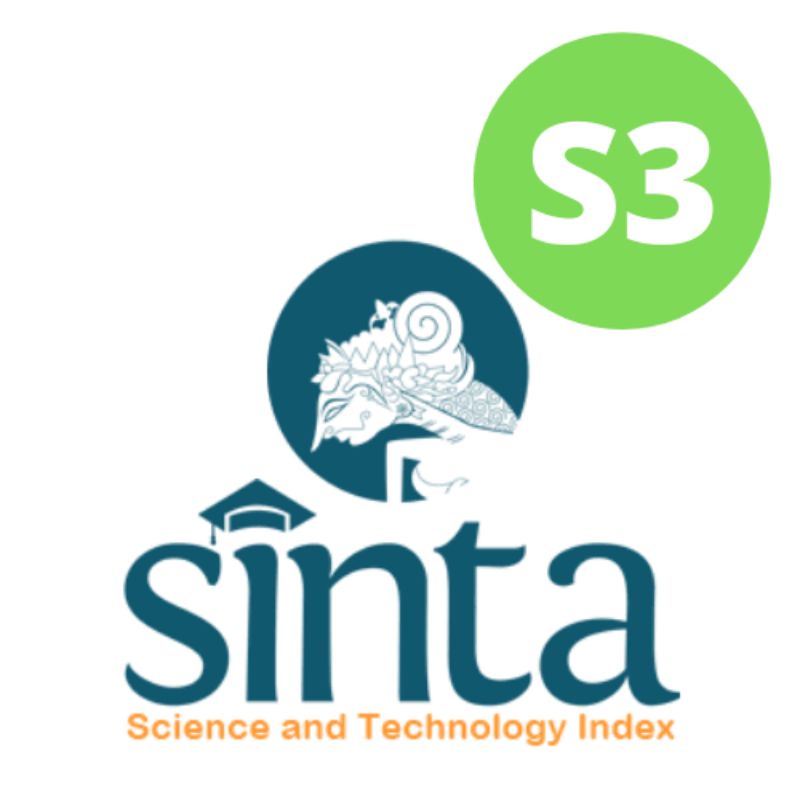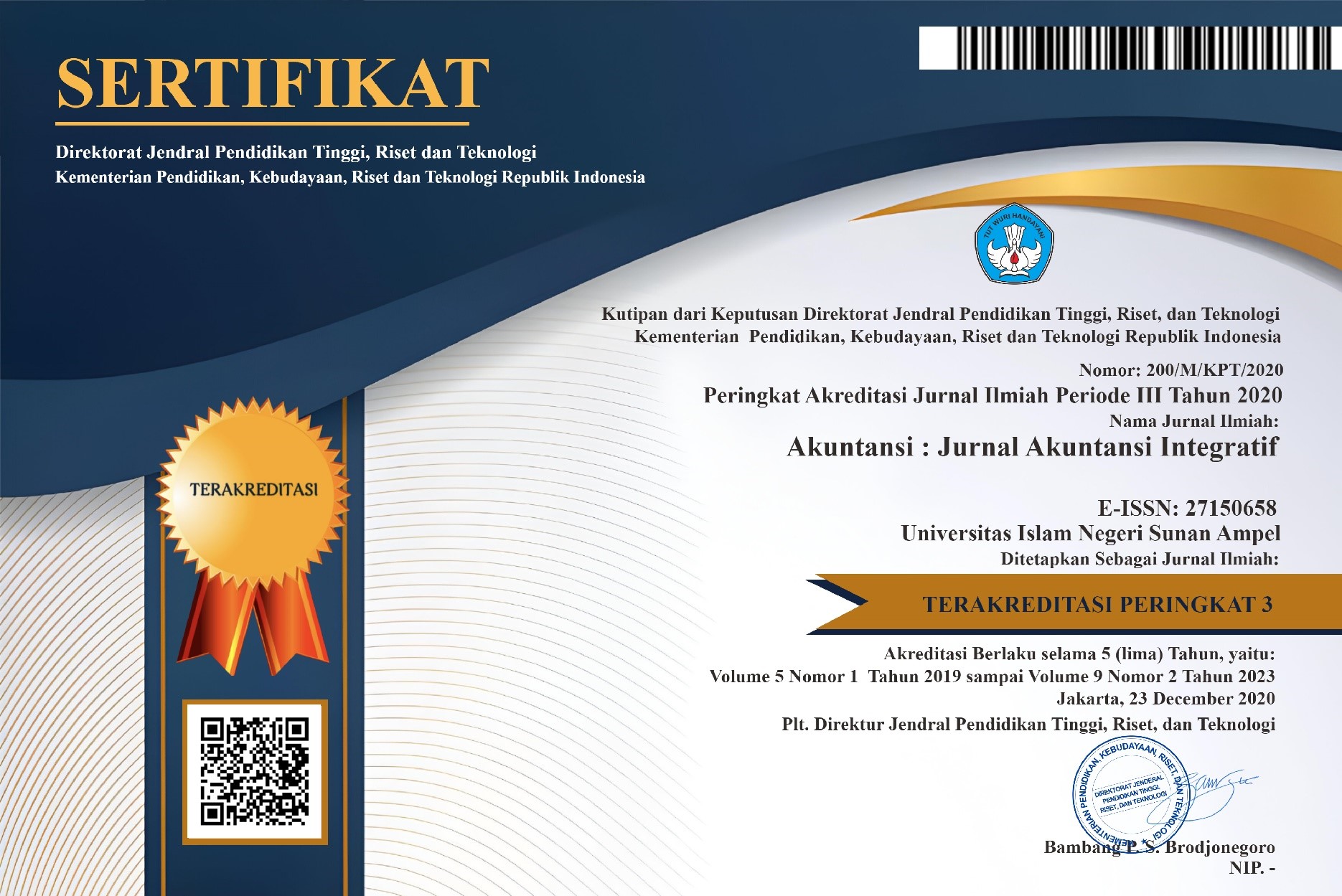Examining the Dimensions of Corporate Taxpayer Compliance (Phenomenological Studies)
DOI:
https://doi.org/10.29080/jai.v9i1.1338Keywords:
Compliance Tax, Phenomenology Study, Income TaxAbstract
This study aims to explore the deep meaning of the phenomena of taxpayer compliance in Indonesia through the phenomenology method. Disclosing the attitude of tax compliance is based on several reasons, including the low level of state tax revenue, the decline in public trust due to tax scandals, and the low level of awareness of taxpayers in Indonesia. The results show that each individual has a perspective based on experience. Tax compliance is interpreted as an attitude of compulsion, sincerity, and fear of the rules that the government has made. This research is expected to provide input for the government in developing tax regulations so that they are not only oriented towards pragmatic and material decisions but also towards non-material values.
Downloads
References
Alm, James. 2019. “What Motivates Tax Compliance.” Wiley Online Library. https://onlinelibrary.wiley.com/doi/abs/10.1111/joes.12272.
Alm, James, and Chandler Mcclellan. 2012. “Tax Morale and Tax Compliance from the Firm’s Perspective.” KYKLOS 65 (1): 1–17. https://doi.org/10.1111/j.1467-6435.2011.00524.x.
Aripratiwi, Ratna A. 2020. “Integritas Kebenaran Akuntan Publik Di KAP ‘ABC’ Surabaya (Studi Fenomenologi).” AKTSAR: Jurnal Akuntansi Syariah 3 (2): 163–76.
Aripratiwi, Ratna A, Unti Ludigdo, and M Achsin. 2017. “Memaknai Sikap Integritas Akuntansi Publik Di KAP ‘Cemerlang’ Surabaya.” Jurnal Reviu Akuntansi Dan Keuangan 7 (1): 993–1002.
Bulutoding, Lince, Ambo Asse, and Abd Hamid Habbe. 2018. “The Influence of Akhlaq to Tax Compliance Behavior, and Niyyah as Mediating Variable of Moslem Taxpayers in Malaysia.” Scientific Research Journal (SCIRJ) 6 (1): 26–35. www.scirj.org.
Cresswell, John W. 2013. Research Design: Pendekatan Kualitatif, Kuantitatif, Dan Mixed. Pustaka Pelajar.
Dahrani, Dahrani, Maya Sari, Fitriani Saragih, and Jufrizen Jufrizen. 2021. “Model Kepatuhan Wajib Pajak (Studi Pada Wajib Pajak Yang Melakukan Usaha Di Kota Medan).” Jurnal Akuntansi Dan Pajak 21 (2): 379–89. https://doi.org/10.29040/jap.v21i2.1513.
Darmawati, Desi, and Riri Zelmiyanti. 2021. “Kepercayaan Publik Dan Nilai Religiusitas Terhadap Kepatuhan Wajib Pajak.” Journal of Applied Managerial Accounting 5 (1): 114–23. https://jurnal.polibatam.ac.id/index.php/JAMA/article/view/2856.
Darmayasa, I Nyoman, NKMTD Absari, and I Nyoman Mandia. 2021. “Nilai Tri Kaya Parisudha Sebagai Fondasi Kepatuhan Pajak Orang Pribadi.” Jurnal Riset Dan Aplikasi: Akuntansi Dan Manajemen 5 (2): 129–44. https://doi.org/10.33795/jraam.v5i2.001.
Darmayasa, IN. 2019. “Preskriptif Ketentuan Umum Perpajakan Pada Perspektif Akuntansi Pancasila.” Jurnal Akuntansi Multiparadigma 10 (1): 22–41. https://doi.org/10.18202/jamal.2019.04.10002.
Dewi, NPDA, and IPG Diatmika. 2020. “Pengaruh Tingkat Kepercayaan, Persepsi Tax Amnesty, Akuntabilitas Pelayanan Publik, Dan Lingkungan Sosial Terhadap Kepatuhan Wajib Pajak Orang Pribadi.” Jurnal Ilmiah Akuntansi Dan Humanika 10 (2): 245–54. https://ejournal.undiksha.ac.id/index.php/JJA/article/view/25895.
Diamastuti, Erlina. 2016. “Ke (Tidak) Patuhan Wajib Pajak: Potret Self Assessment System.” Jurnal Ekonomi Dan Keuangan 20 (3): 280–304. https://ejournal.stiesia.ac.id/ekuitas/article/view/52.
Fathani, Abdul Halim. 2008. Ensiklopedia Hikmah. Yogyakarta: Ar-Ruzz Media Group.
Firdaus, MS. 2019. “Tinjauan Syariah Terhadap Pengalokasian Dana Pajak Di Indonesia.” Jurnal Sketsa Bisnis 6 (1): 59–67. https://jurnal.yudharta.ac.id/v2/index.php/SKETSABISNIS/article/view/1606.
Halim, Abdul, IR Bawono, and Amin Dara. 2020. Perpajakan - Konsep, Aplikasi, Contoh, Dan Studi Kasus. 3th ed. Jakarta: Salemba Empat.
Ispriyarso, Budi. 2019. “Keberhasilan Kebijakan Pengampunan Pajak (Tax Amnesty) Di Indonesia.” Administrative Law & Governance Journal 2 (1): 47–59. https://ejournal2.undip.ac.id/index.php/alj/article/view/5066.
Jamil, Nur Asyiah. 2017. “Efektivitas Penerapan Tax Amnesty Di Indonesia.” Journal of Multidisciplinary Studies 1 (1): 51–65. http://ejournal.iainsurakarta.ac.id/index.php/academica/article/view/766.
Kamayanti, Ari. 2016. Metodologi Konstruktif Riset Akuntansi - Membumikan Religiositas. Edited by Aji Dedi Mulawarman. Yayasan Rumah Peneleh.
———. 2020. Metodologi Penelitian Kualitatif Akuntansi: Pengantar Religiositas Keilmuan. Jakarta: Penerbit Peneleh.
Kuswarno, Engkus. 2009. Fenomenologi: Metode Penelitian Komunikasi : Konsepsi, Pedoman, Dan Contoh Penelitian. Widya Padjadjaran.
Liyana, NF. 2019. “Menakar Masalah Dan Tantangan Administrasi Pajak: Kepatuhan Pajak Di Era Self-Assessment System.” Jurnal Pajak Dan Keuangan Negara 1 (1): 84–90. https://jurnal.pknstan.ac.id/index.php/pkn/article/view/606.
Mangoting, Yenni. 2018. “Quo Vadis Kepatuhan Pajak?” Jurnal Akuntansi Multiparadigma 9 (3): 451–70. https://doi.org/10.18202/jamal.2018.04.9027.Mangoting, Yenni, Eko Ganis Sukoharsono, and Nurkholis Nurkholis. 2017. “Menguak Dimensi Kecurangan Pajak.” Jurnal Akuntansi Multiparadigma 8 (2): 274–90. https://jamal.ub.ac.id/index.php/jamal/article/view/528.
Muhamad, MS, Meinarni Asnawi, and BJC Pangayow. 2019. “Pengaruh Sosialisasi Perpajakan, Tarif Pajak, Sanksi Perpajakan, Dan Kesadaran Perpajakan Terhadap Kepatuhan Pelaporan SPT Tahunan Wajib Pajak Orang Pribadi (Studi Empiris Pada KPP Pratama Jayapura).” Jurnal Akuntansi & Keuangan Daerah 14 (1): 69–86.
Pauji, SN. 2020. “Hubungan Tingkat Pendidikan, Kesadaran, Kepercayaan, Pengetahuan, Masyarakat Terhadap Kepatuhan Wajib Pajak Dalam Membayar Pajak.” Prisma (Platform Riset Mahasiswa Akuntansi) 1 (2): 48–58. http://www.ojs.stiesa.ac.id/index.php/prisma/article/view/418.
Permana, Randy Kurnia. 2020. “Efektivitas, Dampak, Dan Keberhasilan Tax Amnesty Di Indonesia.” Jurnal Akuntansi Dan Bisnis Krisnadwipayana 7 (3): 95–102. https://doi.org/10.35137/jabk.v7i3.450.
Sulistiowati, and Syaiful. 2018. “Mengungkap Realitas Kepatuhan Wajib Pajak Pasca Tax Amnesty.” Journal of Islamic Accounting and Tax 1 (2): 103–18. http://journal.umg.ac.id/index.php/tiaa/article/view/528.
Torgler, Benno, and Friedrich Schneider. 2004. “Does Culture Influence Tax Morale? Evidence from Different European Countries.” Journal Crema. Vol. 17. https://www.econstor.eu/handle/10419/214303.
Downloads
Published
How to Cite
Issue
Section
License
Copyright (c) 2023 Ratna Anggraini Aripratiwi, Khoirul Umam Hasbiy

This work is licensed under a Creative Commons Attribution-ShareAlike 4.0 International License.









